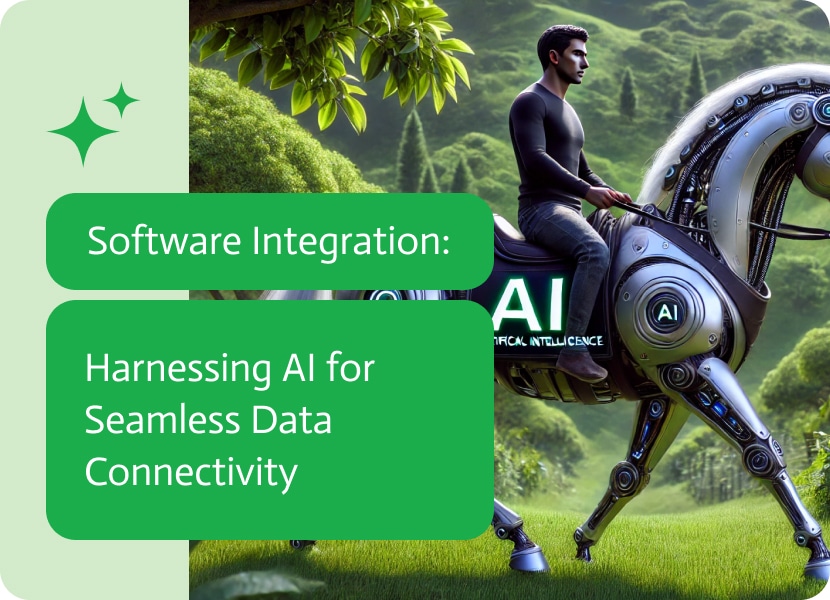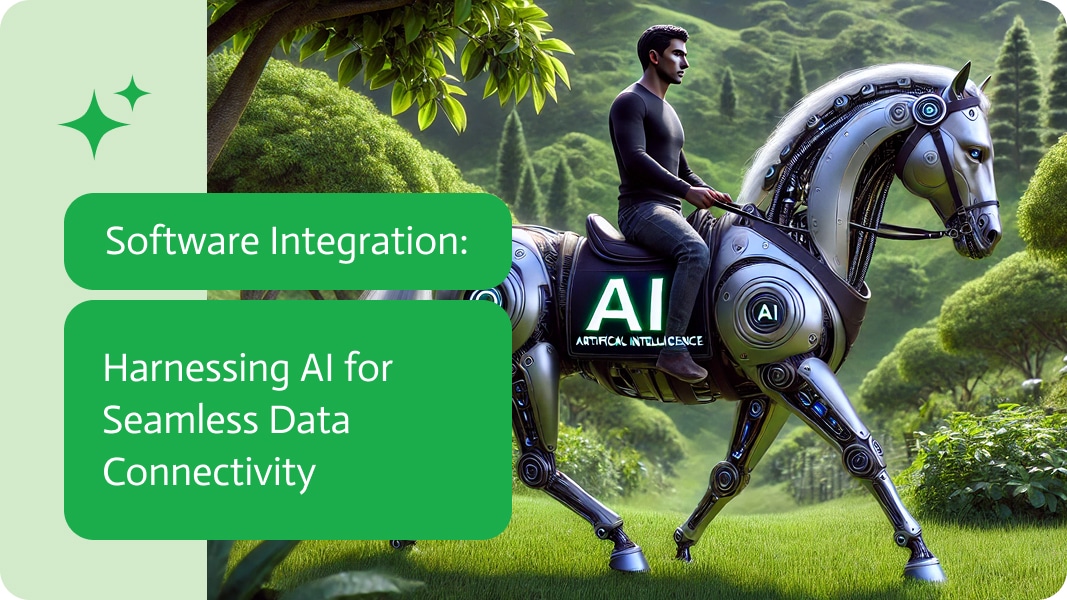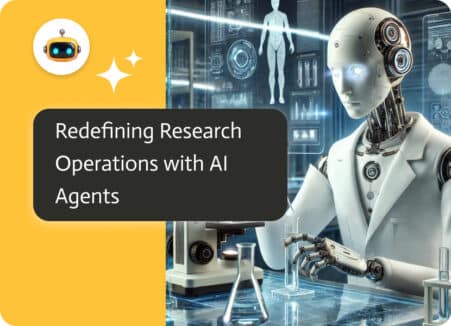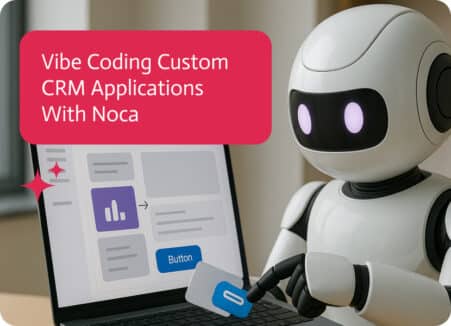

Software Integrations: Harnessing AI for Data Connectivity
Imagine an organization where every department seamlessly shares data, enhancing efficiency and decision-making. This is exactly what you can achieve with AI-powered software integrations. This article explores various integration processes, types of integration software, and the unique advantages of AI-based no-code iPaaS platforms.
Understanding Software Integration
Software integration involves connecting different software applications so they can work together seamlessly. Typically, this is done through application programming interfaces (APIs). Once connected, these applications can share data and update each other in real- or near real-time.
Take your IT team, for instance. They might rely on ServiceNow for IT service management, Datadog for monitoring, and Okta for identity management. Meanwhile, the sales operations team could be using Salesforce for CRM, SalesLoft for engagement, and PandaDoc for electronic signatures. Your finance team might depend on Sage Intacct for ERP, Expensify for managing expenses, and Gusto for payroll processing.
These essential tools, while powerful on their own, can only reach their full potential when integrated effectively. Without integration, vital data remains siloed, making it tough for employees to access and use crucial information promptly. That’s where software integration comes in – it helps you effortlessly combine all of these systems for reliable data connectivity.
Real-Life Examples of Software Integration
To better understand software integration, let’s dive into some real-world examples.
Enhancing IT Incident Management with ITSM and Monitoring Tools
Efficiently managing IT incidents is crucial for maintaining system uptime. Integrating your IT Service Management (ITSM) tool with a monitoring system can streamline this process. For instance, using ServiceNow and Datadog creates a seamless workflow.
When Datadog detects an anomaly, it triggers a workflow in ServiceNow. If the issue is new, a ticket is created in ServiceNow with all relevant details from Datadog. As the issue progresses, updates from Datadog automatically reflect in the ServiceNow ticket.
This integration ensures that IT teams can respond quickly and effectively to any issues, minimizing downtime and maintaining smooth operations.
Synchronizing Sales Data Between CRM and Engagement Platforms
Managing sales data efficiently is key to driving revenue. Integrating Salesforce with SalesLoft can make this process easier than ever.
When a new lead is added in Salesforce, the software integration triggers a workflow. If the lead already exists in SalesLoft, its record is updated. If not, a new contact is created, mapping information from Salesforce to SalesLoft fields.
This data synchronization allows sales teams to have up-to-date information at their fingertips, ensuring that they can engage with prospects in a timely and informed manner.
Integrating Financial Systems for Accurate Expense Reporting
Accurate financial reporting is essential for budget management. Connecting Expensify with Sage Intacct helps ensure comprehensive financial insights.
When a new expense report is submitted in Expensify, it triggers a workflow in Sage Intacct. If the report already exists in Sage Intacct, it is updated. If not, a new report is generated, mapping fields from Expensify to Sage Intacct. Financial data is automatically updated, allowing finance teams to monitor expenses and budgets in real-time.
This integration streamlines the expense reporting process, reducing errors and saving time.
Why Software Integration Matters
Integrating your software systems offers several significant benefits. Here are some of the most common ones you can expect.
- Boosted Productivity: Real-time data access helps employees make informed decisions quickly, enhancing productivity and efficiency.
- Enhanced Employee and Client Experiences: Automating data entry and reducing app-switching gives employees more time to focus on strategic tasks, improving job satisfaction and client interactions.
- Improved Collaboration: Breaking down data silos enables employees to access the same information across departments, fostering better teamwork and effective communication.
- Expanded Application Functionality: With more data access, applications can be used in more powerful and versatile ways.
Best Practices for Implementing Software Integration
To get the most out of software integration, consider these best practices.
- Set Clear Objectives: Identify what you want to achieve with integration, whether it’s reducing errors, saving time, or improving decision-making.
- Engage Stakeholders Early: Involve end-users and other stakeholders early on to gather insights and ensure integrations meet practical needs.
- Select the Right Tools: Choose software integration tools that align with your business needs and technical requirements.
- Prioritize User Training: Ensure all users are adequately trained to use the integrated systems effectively.
- Monitor and Optimize Continuously: Regularly check the performance of your integrations and optimize them as needed.
The Advantages of AI-Based No-Code iPaaS Platforms
AI-based no-code iPaaS platforms, such as Noca AI, offer several unique advantages over traditional software integration solutions.
Intuitive User Interface
These platforms are designed for business users, featuring easy-to-navigate interfaces that minimize the need for IT involvement. This allows non-technical users to set up and manage integrations themselves, leading to quicker and more flexible workflows.
Natural Language Processing
One of the standout features of AI-based no-code platforms is the incorporation of natural language processing (NLP). This technology enables users to create integrations using straightforward language commands. Even if you don’t have a technical background, you can set up complex workflows simply by describing what you want in plain English.
Smart Automation
AI doesn’t just assist with setting up integrations; it actively optimizes them. This intelligent automation can identify bottlenecks and recommend adjustments to improve efficiency and accuracy. By predicting potential issues and providing real-time suggestions, AI helps ensure that your operations run smoothly.
Rapid Deployment
Because these platforms are no-code, you can deploy new integrations much faster than with traditional coded solutions. There’s no need to wait for lengthy development cycles. Instead, you can get your integrations up and running in a fraction of the time.
Scalability
AI-based platforms are designed to grow with your business. As your needs evolve, you can easily scale your software integrations without needing to overhaul your entire system. This flexibility is crucial for businesses looking to stay agile in a rapidly changing market.
Simplifying iPaaS Challenges with AI-First Platforms
Implementing any iPaaS system comes with challenges, but an AI-first platform can simplify these hurdles. Here are some common examples.
- Initial Learning Curve: Users might need some time to get familiar with the platform’s features. However, AI and NLP capabilities can significantly shorten this learning curve by offering guidance and intuitive recommendations, helping users get up to speed more quickly.
- Integration Complexity: Ensuring seamless integration with existing systems can be complex and require initial setup efforts. AI-driven tools simplify this process by automatically mapping and configuring integrations, reducing the manual effort needed.
- Data Security: Protecting sensitive business data within automated workflows is crucial. An AI-first approach enhances security by continuously monitoring for threats and vulnerabilities, offering robust protection, and ensuring compliance with industry standards.
Final Thoughts on Software Integrations
Leveraging software integrations can help you transform your business operations, making them more efficient, scalable, and adaptable. By following best practices and utilizing the full potential of these tools, you can ensure your business stays ahead in an increasingly automated world.
AI-based no-code iPaaS platforms like Noca AI offer a comprehensive software integration solution with advanced features that help simplify configuration processes, reduce reliance on technical staff, and enhance overall operational efficiency.
Software Integration FAQs
1. How do software integrations improve business operations?
Software integration enables seamless data flow between different applications, eliminating data silos and allowing employees to access and act on real-time information. This leads to more informed decision-making, increased productivity, and enhanced collaboration across departments.
2. What makes AI-based no-code iPaaS platforms different from traditional software integration solutions?
AI-based no-code iPaaS platforms like Noca AI offer user-friendly interfaces, making them accessible to non-technical users. They leverage AI and NLP to simplify the integration process, allowing users to create and optimize workflows using simple language commands. These platforms also provide rapid deployment, scalability, and enhanced security.
3. Can AI-based iPaaS platforms handle complex software integrations?
Yes, AI-based iPaaS platforms are designed to handle complex software integrations. They use AI to automatically map and configure integrations, predict potential issues, and provide real-time optimization suggestions. This makes it easier to manage and scale complex workflows.
4. How do AI and NLP improve the software integration process?
AI and NLP enhance the integration process by allowing users to set up workflows using natural language commands, making the process accessible to non-technical users. AI also optimizes workflows by predicting issues, providing insights, and automating decision-making processes.
5. What are the security benefits of using AI-based iPaaS platforms?
AI-based iPaaS platforms prioritize data security by continuously monitoring for threats and vulnerabilities. They implement robust protection measures and ensure compliance with industry standards. This helps keep your sensitive business data secure, even as it moves between applications.


